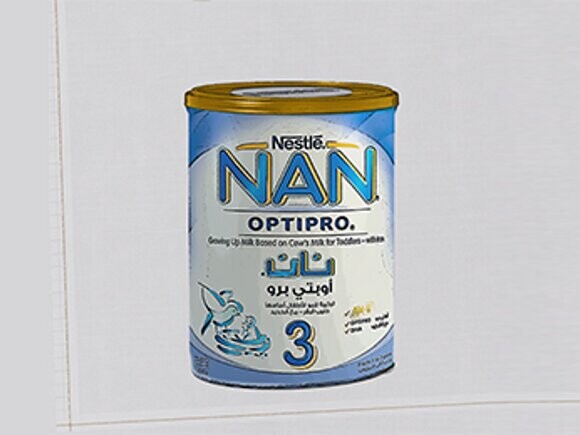Importance Of Calcium In Your Child’s Diet
IMPORTANT NOTICE: The World Health Organization (WHO) recommends exclusive breastfeeding for the first 6 months and continued breastfeeding for as long as possible. Growing up milks are formulated to meet nutrition needs of healthy young children older than 1 year and should not be fed to infants.
Childhood is a basic and critical period of bone growth and development. To help your child build and strengthen his bones, you should enrich his daily diet with great amounts of calcium. As a matter of fact, his bone structure or body frame won’t grow and get stronger unless you increase the amount of calcium in his body.
It’s true that the growth of one’s bone structure lasts till the age of 30, only the most important part of this growth occurs during childhood. That’s why it’s a must to provide children with the appropriate amount of calcium.
According to many reliable resources, this appropriate amount of calcium differs from one age group to another as follows:
For infants under 6 months old: 200mg
For babies between 7 months and 1 year old: 260 mg
For toddlers between 1 and 3 years old: 700 mg
For children between 4 and 8 years old: 1000 mg
For children between 9 and 13 years old: 1300 mg
It is to be noted that this daily calcium intake is meant to protect your child against bone diseases later in life, build him strong teeth, stimulate his metabolism and trigger the clotting reactions that may prevent him from bleeding.
Without it, your child will be prone to issues related to muscle contractions, weakness in nervous system and a great number of bone diseases, on top of which comes Osteoporosis that hits the bone density, and makes one’s bones more fragile and more susceptible to break.
To help your child meet his needs of calcium, we advise you to offer him dairy products that are the easiest and most common sources of calcium. And we mean by dairy products: milk, cheese and yogurt.
You may also offer him green veggies like spinach, broccoli and kale. But, unfortunately, little children don’t like these kinds of vegetables so you can compensate them either by serving your kid grains, calcium-fortified milk, bread, rice, fortified juices, or by putting milk into his soups and other dishes, or by using yogurt instead of juice to make him smoothies, or by adding cheese to his salads and cooked vegetables.
But in case your child has a milk allergy or suffers from lactose intolerance, then you will have to serve him alternative foods like tofu and salmon, or consult his pediatrician about the likelihood of giving him calcium supplements or anti-acid pills which contain calcium carbonate.
In either case, don’t neglect your child’s needs for calcium and do your best to enrich his daily diet with this essential mineral, along with Vitamin D which plays a major role in stimulating Ca absorption.
Read More: 10 Healthy Snacks For Young Children
Get full access to expert-backed nutrition support
My feed
Curated content based on your preferences
Feeding guidance
Learn about various feeding options and what each means for you and your baby
Tailored Practical Tools
Try our tailored practical tools to guide you through the parenting journey.
My First 1000 Days club
Customised notifications, reminders and newsletters
Still haven't found what you are looking for?
Try our new smart question engine. We'll always have something for you.





















